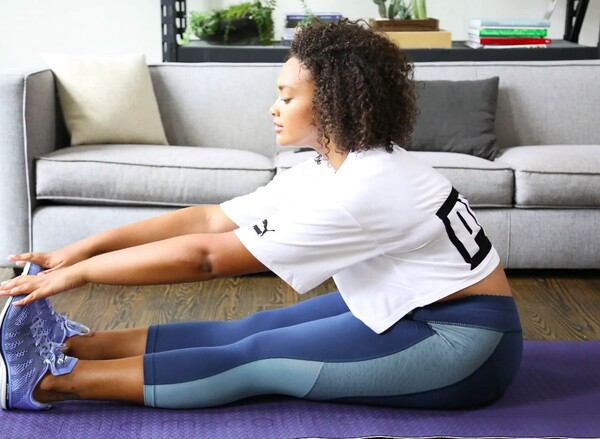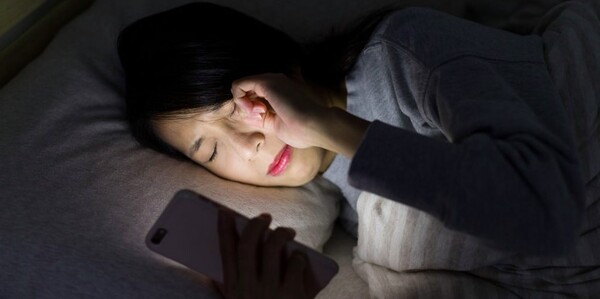It's so tempting to want to sleep through those extra hours in the morning. But even though it feels like you aren't getting enough sleep, how much do you need? And how can you get the best night's rest with the least amount of time spent in bed? Here are some helpful tips on how to sleep 8 hours in 3 hours!
Eat Light Before Bed

The best way to get your eight hours of sleep is by making sure you eat right before bed. Eat a light meal with fewer carbohydrates and more protein at least one hour before bed. Ensure the food isn't spicy or has a lot of garlic because both can affect how long it takes you to fall asleep.
Eating before bed will help with digestion so that you won't it's uncomfortable if anything is hanging over your head when it's time for bed.
Practice Mindful Meditation

Meditation is a powerful tool for reducing stress and reconnecting with your body. Start by sitting comfortably, without support, on the floor or on a chair. Find a comfortable position that will allow you to stay alert during the practice (yoga or Hatha postures work great). Inhale deeply and raise your arms over your head. As you exhale, bring your hands down around your stomach and open up the space between your knees.
Take 4-5 deep breaths like this. Next, lower your right hand to the ground next to your left foot, so they are shoulder-width apart, and place them palms down on the floor. Put one foot on top of the other (ankles crossed). Now take three slow breaths through your nose with a long exhalation. Slowly push out all the air from inside you to feel like all the air has been released from your lungs when you breathe.
Take a Warm Bath

Since it's late and you don't want it's nodding off don't are a few things you can do right now.
- Take a warm bath or a hot shower.
- Use melatonin supplements if necessary.
- Drink calming herbal tea like chamomile before bed.
- Try deep breathing exercises that relax your body and reduce your heart rate before bedtime. - Meditate for 5 minutes by focusing on one word, thought, or image until you start to feel sleepy.
- Create a sleep playlist of soothing songs and instrumental music with no lyrics so that the sound doesn't interfere with your s doesn't.
- Put on some aromatherapy oils (lavender is incredibly soothing) before bed to help lull you to sleep.
Wear Socks

I need eight hours of sleep a night, but that seems virtually impossible when I work a full-time job and have other obligations. That's why I've discovered thThat'san the survey caught up on my beauty sleep with just three hours of sleep in one night. Here are the hacks that I do:
- Go to bed only when you're sleepy, even earlier t you're usual bedtime. You that sure already asleep before this time; you wake up at the end of the designated three hours and go back to sleep for an hour or two more.
- Wear socks: The University of Maryland Medical Center recommends wearing socks because warm feet promote circulation. Your toes will stay warm, which will help keep your entire body warm during those cold winter months. If your feet get too hot, cool them off by sticking them outside or in front of a fan.
Get Some Exercise!

Ideally, you should go to bed before 10 PM, exercise during the day, drink less caffeine and Alcohol at night, and create a relaxing bedtime routine.
These things will help your body release the hormone melatonin (that regulates sleep) so you can sleep all night. After your evening workout, relax with a warm bath or meditation. Turn off electronics:
The blue light from electronics tricks our brains into thinking it's daytime and makes it difficult foretaste fall asleep or stay asleep.
If you're reading something on your phone, you're left before bed, put the device down 30 minutes before going to sleep so that the artificial light doesn't disrupt your body's natural air doesn't rhythm.
Limitbody'sn Time Before Bed

You must limit screen time before bed. Studies have shown that too much screen time before bed leads to poor sleep quality and other health issues. Try putting your phone away at least an hour before bed and reading a book or taking a bath.
Give yourself more time to wind down. Limit your intake of caffeine: Caffeine affects the time it takes for your body to go into REM sleep. The longer it takes for your body to enter REM sleep, the worse the quality of your sleep will be, and the less refreshed you will feel when you wake up.
Conclusion:
You can do a few things throughout the day and night to make it easier on yourself.
-Turn off your phone an hour before bedtime so that the light from the screen won't keep you awake. -Shut down the computer an hour before bedtime and read, knit, or take a bath. -Stretch or take a walk for about ten minutes before bed. -Do something low-key before bed, like reading by candlelight, meditating, or drinking tea without caffeine.
FAQ
How can I sleep 8 hours within 4 hours?
- REM sleep, on the other hand, refreshes your thoughts and is critical for crucial mind features like memory retention, learning, regulating your mood, and mind improvement for a more youthful
individuals.
- Read a book.
- Practice yoga stretches.
- Take a pre-bedtime bath.
- Write in a journal.
Are 3 hours of sleep possible?
Some humans can thoroughly sleep for the shortest three hours and perform tasks after falling asleep in bursts. Though many professionals do nevertheless advocate sleeping at least 6 hours a night, with eight being preferable,
Are 3 hours of sleep better than none?
Ideally, it would help if you tried to get more than ninety minutes of sleep. Sleeping between ninety and one hundred and ten minutes offers your body time to finish one complete sleep cycle and may decrease grogginess while you wake. But any sleep is better than none now—even though it is a 20-minute nap.
Are 4 hours of sleep OK for one night?
They're considered "brief sleepers," "hey get six you "s or much less of shut-eye a night. Experts advocate that adults sleep at least seven hours.
How to Sleep 8 Hours in 3 Hours
There are some things you could do while schooling your frame to sleep much less that will help you get through brief intervals of sleep deprivation:
1. Avoid Mobile Screen Time for an Hour Before Bed.
2. Keep Mobile Screens and Other Distractions Out of Your Bedroom.
3. Get Some Light Exercise.
4. Make Sure Your Room is Dark.
5. Avoid Alcohol.
6. Reduce caffeine intake.














